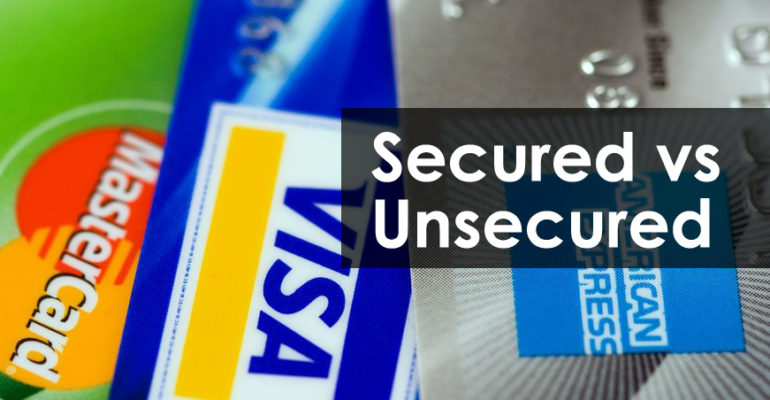
The Difference Between Secured vs Unsecured Cards and Which Is Better For You
Secured Credit Card
A secured credit card is funded by a cash deposit supplied beforehand by the cardholder. The amount deposited onto the card is your credit limit, which can be increased by adding more funds after demonstrating a good payment history. The credit line with secured credit cards will be from 70% to 100% of the security cash deposit.
Depending on the credit card issuer, the deposit will be required for a limited time, such as one year. If the payment history with the credit card is good for a select period of time, your credit limit may be increased, or the credit card issuer may offer an unsecured credit card.
Unsecured Credit Card
Unsecured credit cards have no collateral associated with them. They are primarily intended for individuals with good or excellent credit with the credit limit being based on the cardholder’s credit score, credit report and payment records. Many unsecured credit cards offer rewards such as cash back, miles, and points.
Which Is Better For You?
Both cards have their own benefits. If you have strong enough credit, an unsecured card just may be the way to go. They generally have lower fees, higher credit limits, rewards and perks. On the other hand, however, unsecured cards may actually come with higher fees and interest rates for cardholders with less-than-perfect credit.
Individuals who have money management issues or are trying to build or rebuild credit may want to consider a secured credit card. They can actually establish credit for newcomers and improve credit for cardholders dealing with bad credit. In general, secured credit cards are designed for individuals with poor credit or no credit at history at all.
When choosing a secured credit card, be sure that your secured card activity is being reported to the credit agencies.
Secured Credit Card
A secured credit card is funded by a cash deposit supplied beforehand by the cardholder. The amount deposited onto the card is your credit limit, which can be increased by adding more funds after demonstrating a good payment history. The credit line with secured credit cards will be from 70% to 100% of the security cash deposit.
Depending on the credit card issuer, the deposit will be required for a limited time, such as one year. If the payment history with the credit card is good for a select period of time, your credit limit may be increased, or the credit card issuer may offer an unsecured credit card.
Unsecured Credit Card
Unsecured credit cards have no collateral associated with them. They are primarily intended for individuals with good or excellent credit with the credit limit being based on the cardholder’s credit score, credit report and payment records. Many unsecured credit cards offer rewards such as cash back, miles, and points.
Which Is Better For You?
Both cards have their own benefits. If you have strong enough credit, an unsecured card just may be the way to go. They generally have lower fees, higher credit limits, rewards and perks. On the other hand, however, unsecured cards may actually come with higher fees and interest rates for cardholders with less-than-perfect credit.
Individuals who have money management issues or are trying to build or rebuild credit may want to consider a secured credit card. They can actually establish credit for newcomers and improve credit for cardholders dealing with bad credit. In general, secured credit cards are designed for individuals with poor credit or no credit at history at all.
When choosing a secured credit card, be sure that your secured card activity is being reported to the credit agencies.
